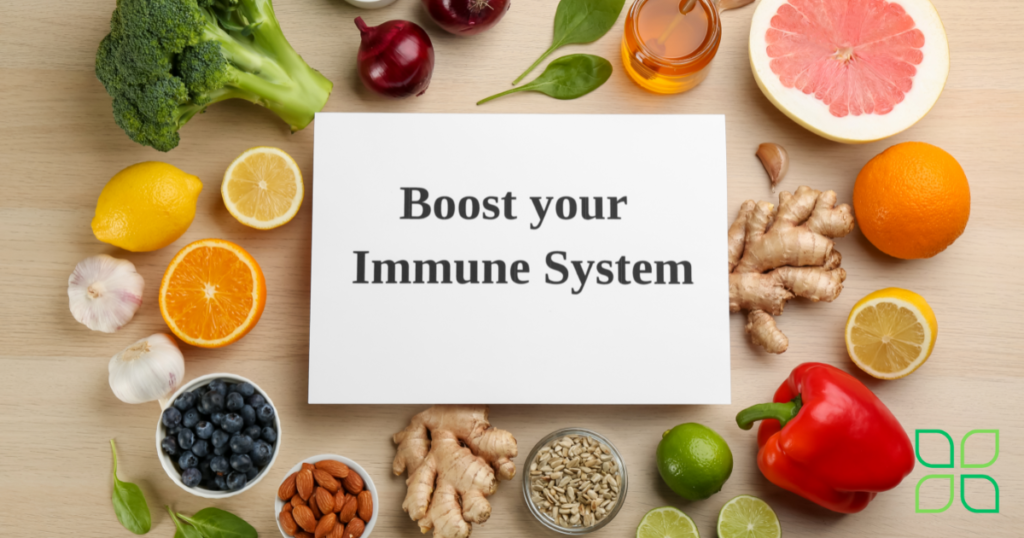A Deep Dive into the Health Benefits of Carotenoids
In the vast world of nutrition, carotenoids stand out as a powerhouse of health benefits. These naturally occurring pigments, responsible for the vibrant colors in many fruits and vegetables, are more than just eye-catching. They play a crucial role in maintaining and improving human health. In this comprehensive guide, we’ll explore the health benefits of carotenoids, backed by science and practical examples.

What Are Carotenoids?
Carotenoids are a class of more than 600 naturally occurring pigments synthesized by plants, algae, and photosynthetic bacteria. They are responsible for the bright red, orange, and yellow hues in many fruits and vegetables. Some of the most well-known carotenoids include beta-carotene, lutein, zeaxanthin, and lycopene.
The Science Behind Carotenoids
Carotenoids are antioxidants, which means they can neutralize free radicals in the body. Free radicals are unstable molecules that can damage cells and contribute to chronic diseases. By combating these free radicals, carotenoids help protect the body from oxidative stress and inflammation.
Types of Carotenoids
There are two primary types of carotenoids:
- Carotenes: These include beta-carotene and lycopene. Beta-carotene is a precursor to vitamin A, essential for vision, immune function, and skin health.
- Xanthophylls: This category includes lutein and zeaxanthin, which are particularly beneficial for eye health.
Health Benefits of Carotenoids
1. Boosting Eye Health

When it comes to maintaining eye health, two nutrients that deserve the spotlight are lutein and zeaxanthin. These carotenoids are not only crucial for keeping our vision sharp but also play a significant role in protecting our eyes from damage.
How Lutein and Zeaxanthin Work
Lutein and zeaxanthin are naturally found in high concentrations in the retina, the part of the eye responsible for processing light. Their primary function is to filter out harmful high-energy blue wavelengths of light. This filtering helps mitigate potential damage caused by prolonged exposure to screens and sunlight.
The Science Behind the Benefits
Research has consistently highlighted the importance of these carotenoids for eye health. For example, a notable study published in the Journal of the American Medical Association demonstrated that individuals with higher intake of lutein and zeaxanthin had a significantly reduced risk of developing advanced age-related macular degeneration (AMD). AMD is a leading cause of vision loss in older adults, making these findings particularly impactful for those looking to maintain their eyesight as they age.
Moreover, these nutrients have been linked to a decreased risk of cataracts, a condition characterized by clouding of the eye’s lens, which can lead to vision impairment. By incorporating foods rich in lutein and zeaxanthin into your diet, such as leafy greens, eggs, and certain fruits, you can take proactive steps towards safeguarding your eye health.
2. Supporting Skin Health

When it comes to achieving glowing, healthy skin, many of us turn to skincare products and routines. However, the nutrients we consume can play a pivotal role in maintaining skin vitality. Two such nutrients are carotenoids, specifically beta-carotene and lycopene, which are powerhouse compounds for supporting skin health.
Protecting Your Skin from UV Damage Naturally
Beta-carotene and lycopene are well-known for their ability to bolster skin health by acting as natural protectors against UV damage. These carotenoids are pigments found in plants that give fruits and vegetables their vibrant red, orange, and yellow colors. When we consume foods rich in beta-carotene and lycopene, or take them as supplements, these compounds integrate into our skin and help to form a protective barrier against the harmful effects of the sun.
Enhance Your Skin’s Defense Against Sunburn
One of the standout benefits of these carotenoids is their ability to enhance the skin’s resilience to sunburn. By mitigating the effects of UV exposure, beta-carotene and lycopene can help reduce the incidence of sunburn, which in turn helps to prevent long-term damage such as wrinkles and fine lines. This means incorporating these nutrients into your diet can be an effective strategy for maintaining youthful, supple skin.
Combat Premature Aging with Antioxidants
Research has shown that a diet rich in carotenoids like beta-carotene and lycopene can significantly protect skin cells from oxidative damage. Oxidative stress is a major contributor to premature aging, leading to the breakdown of collagen and elasticity in the skin. By neutralizing free radicals, these antioxidants help preserve the integrity and appearance of your skin.
How to Incorporate Beta-Carotene and Lycopene into Your Diet
To harness the skin-boosting benefits of these carotenoids, consider incorporating foods like carrots, sweet potatoes, and spinach for beta-carotene, and tomatoes, watermelon, and pink grapefruit for lycopene, into your meals. These nutrient-rich foods not only promote skin health but also offer a host of other health benefits.
3. Promoting Heart Health

When it comes to promoting heart health, nature has provided us with some powerful allies, one of which is lycopene. This potent carotenoid, found abundantly in tomatoes, is gaining recognition for its impressive heart health benefits. Let’s dive into how lycopene can be a game-changer for your cardiovascular wellness.
What Makes Lycopene a Heart Health Hero?
Lycopene is a natural antioxidant that has been linked to various health benefits, particularly for the heart. Its ability to reduce cholesterol levels and enhance blood vessel function makes it a standout nutrient. According to a comprehensive meta-analysis published in the British Journal of Nutrition, individuals with higher lycopene intake tend to have a lower risk of developing cardiovascular diseases. This research highlights lycopene’s potential as a natural defense against heart-related issues.
4. Enhancing Immune Function

When it comes to keeping your immune system in top shape, incorporating carotenoids into your diet can make a significant difference. One of the most powerful carotenoids, beta-carotene, plays a crucial role in enhancing your body’s natural defenses. Let’s dive into how beta-carotene supports your immune system and which foods you should include in your meals to reap its benefits.
The Role of Beta-Carotene in Immunity
Beta-carotene is a precursor to vitamin A, a nutrient essential for maintaining the integrity of mucous membranes in the body. These membranes act as a first line of defense against pathogens, helping to prevent infections. Vitamin A is also vital for enhancing immune responses, ensuring that your body can efficiently fight off illnesses when they strike.
Why Vitamin A Matters
Adequate levels of vitamin A are crucial for maintaining a robust immune system. Without enough vitamin A, your body may struggle to fend off infections, making you more susceptible to common ailments. By ensuring sufficient intake of beta-carotene, you help your body convert it into vitamin A, supporting your overall immune function.
Incorporating Carotenoids Into Your Diet
Getting enough carotenoids in your diet doesn’t have to be complicated. Here are some actionable tips to help you boost your carotenoid intake:
- Eat a Rainbow: Incorporate a variety of colorful fruits and vegetables into your meals. Think carrots, sweet potatoes, spinach, kale, and tomatoes.
- Take Supplements: Supplements are the easiest way to make sure you get your daily carotenoid dosage. Make sure to research a reputable company that produces high quality products. HERE is the best one that we could find with multi-carotenoids and was formulated with leading scientist of carotenoid research.
- Cook with Healthy Fats: Carotenoids are fat-soluble, meaning they are better absorbed when consumed with fats. Add a drizzle of olive oil to your salads or roast your vegetables in coconut oil.

Conclusion
Carotenoids are a vital component of a healthy diet, offering a range of benefits from protecting vision and skin health to enhancing immune function and promoting heart health. By understanding the science behind these powerful pigments and incorporating carotenoid-rich foods into your daily meals, you can harness their full potential for better health.
Whether you’re topping your salad with slices of ripe tomatoes or enjoying a sweet potato curry, there’s no shortage of delicious ways to benefit from carotenoids. Embrace the vibrant colors of nature’s bounty and pave the way for a healthier, more vibrant life.
